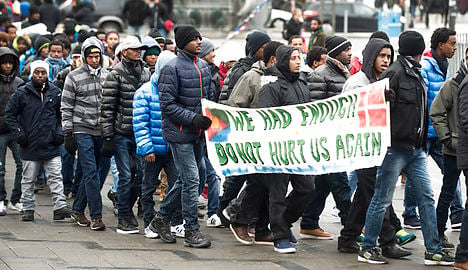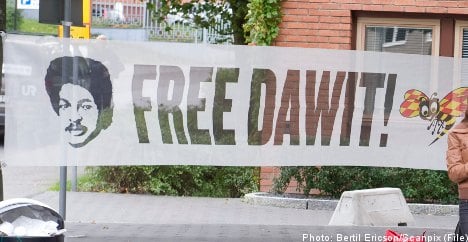The Danish Immigration Services (Udlændingestyrelsen – DIS) report on Eritrea that has led to hefty debate and heavy criticism brought protesters to the streets of Copenhagen on Friday.
Upwards of 500 people participated in a protest action spearheaded by Eritrean asylum seekers and refugees in Denmark.
Protesters marched through Copenhagen before delivering what they called “an urgent appeal” to parliament to disregard the recommendations of the controversial report.
“As the highest organ of the Danish people, we Eritrean refugees in your beloved country appeal to you, Folketinget [the Danish parliament, ed.], not to use the contentious Danish report of the Danish Immigration Service (DIS) in determining our case for political asylum in Denmark,” the group’s open letter to parliament reads.
In a press release sent prior to Friday’s protest, Eritrean asylum seekers and refugees stressed that they “are very thankful to Danish people and to their democratic government for hospitality and liberty”.
“We want to assure the Danish people that we are law-abiding citizens and hardworking people who are made to abandon their beloved country and family due to gross human rights violations in Eritrea,” the press release reads.
DIS’s fact-finding report on Eritrea came after the number of Eritreans seeking asylum in Denmark exploded over the summer. But the report has been heavily criticised, first by its only named source and later by those familiar with the situation in Eritrea and international human rights organisations including Human Rights Watch.
The Eritrea report has also led to allegations and finger pointing within and between DIS and the Justice Ministry.
New figures released by DIS on Friday showed that the number of Eritreans seeking asylum in Denmark fell by 89 percent between August and November. Just 64 Eritreans sought asylum in Denmark last month.



 Please whitelist us to continue reading.
Please whitelist us to continue reading.
Member comments